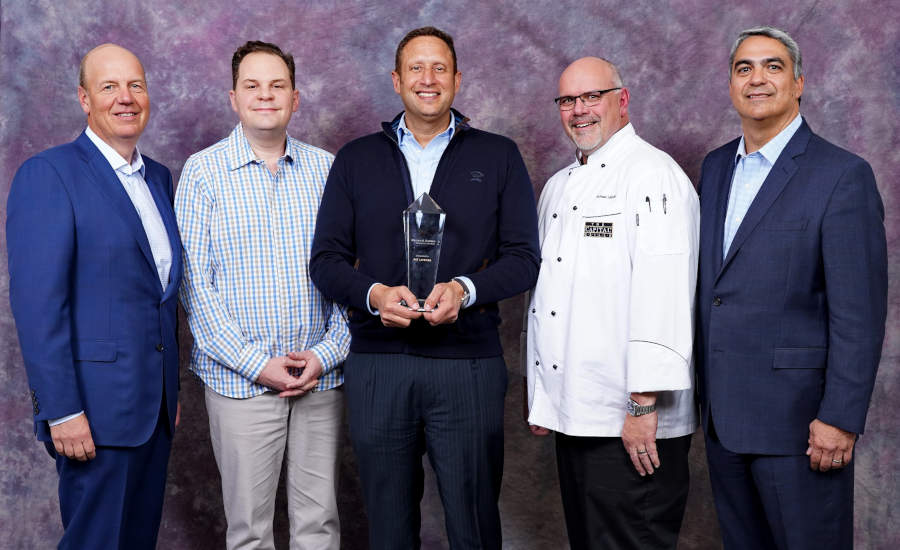Practically any restaurant menu can be improved with the addition of a good, premium burger. The Capital Grille, a high-end steakhouse and a Darden Restaurants concept, recently added a new burger through a partnership with renowned butcher Pat LaFrieda. The addition proved so successful that Darden Restaurants named Pat LaFrieda Meat Purveyors as one of the winners of this year’s William B. Darden Distinguished Supplier Awards. Darden gave out five such awards at its Orlando, Fla. Headquarters this past April. LaFrieda and Sysco Specialty Meats were the only two meat purveyors so honored.
LaFrieda Meats is located in North Bergen, N.J. Creating high-quality burger blends is nothing new for the butcher. The company’s signature blend is three generations old and came from LaFrieda’s grandfather.
“It’s a blend of chuck, clod with the flat-iron still attached — which is very important — boneless short rib and brisket,” he says.
The Capital Grille has more than 50 locations nationwide. It was a large undertaking for LaFrieda Meats, but the company’s specialized burgers were just what Darden wanted.
“We were first of all shocked and honored by the opportunity to work with them. Then it was a matter of logistics, to get the product to each location,” he says.
“Most mass-made burgers in the U.S. are just not made from whole muscle, all-domestic product that’s under 30 months of age,” LaFrieda explains. “What we use to make our burger meat is not the norm, and what they were looking to do was get a burger that had a distinct flavor and texture profile, that would stand out from anything else on the market. That’s really what we specialize in.”
LaFrieda Meats has a network of 50 trucks and is able to deliver product up and down the East Coast. For the remaining Capital Grille restaurant locations, the company works with other trucking companies to get fresh products to the customer in a timely manner.
Dry-aged beef has become a larger and larger part of LaFrieda Meats. The company is currently building a second facility with a drying room that will hold three to four times its current amount of product. Customers are demanding beef that’s dry-aged anywhere from a week to 120 days. The demand is not just for steaks, either. Dry-aged burgers are growing in popularity.
“To be able to get the taste of a dry-aged steak in a burger — some of the same experience but for a quarter of the price — is something that we started doing in 2008, and it’s really grown,” LaFrieda says.
The company has a strong reputation and has played a significant part in bringing the role of the butcher to the forefront of the meat industry again. LaFrieda, his cousin and his father all work separate shifts at the plant, so that the family is overseeing operations.
“I tell this to small businesses: never under-estimate the power of being a small business, not having the red tape that you would in a larger corporation,” he says. “You’re able to make things happen and get things done the right way, the way it should be done. You have yourself to answer to.”




Report Abusive Comment